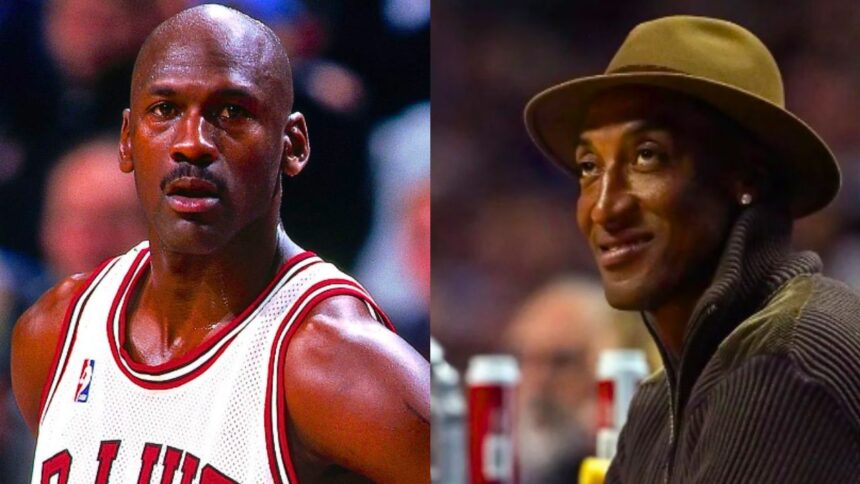The Last Dance docuseries, a captivating glimpse into the legacy of Michael Jordan and the Chicago Bulls, has once again ignited conversations with revelations about deleted footage. Director Jason Hehir recently unveiled a scene that never made it to the final cut, shedding light on the intense dynamics within the team, particularly the friction between players and management.
In a recent podcast appearance, Hehir disclosed his intention to include a particular clip showcasing the adversarial relationship between Scottie Pippen and the Bulls’ former General Manager, Jerry Krause. This deleted scene, set in the locker room, featured Pippen expressing his disdain for Krause in colorful language, evoking laughter from his teammates, including Michael Jordan and Ron Harper.
The contentious remark by Pippen, wherein he humorously threatened to administer a cattle prod to Krause, encapsulated the palpable tension between the players and management. However, despite its potential to offer insight into the Bulls’ internal dynamics, Jordan’s team adamantly insisted on its exclusion from the series.
Hehir’s recounting of his attempt to advocate for the inclusion of the clip underscores the challenges he faced in navigating the sensitivities surrounding the portrayal of Krause. His efforts to provide a comprehensive depiction of the team’s dynamics were met with resistance, with the NBA’s associate producer ultimately vetoing the scene’s inclusion.
The director’s frustration at the backlash he received for his portrayal of Krause reflects the complexities of capturing the nuances of interpersonal dynamics in a documentary format. Hehir’s intention to shed light on the mistreatment endured by Krause was overshadowed by the audience’s perception of Jordan as the unequivocal hero, a narrative that was never his intent.
The rift between Jordan, Pippen, and Krause stemmed from the latter’s controversial assertion that “players and coaches don’t win championships; organizations win championships.” This statement, which Krause later attempted to clarify by emphasizing the role of organizations in supporting players and coaches, fueled animosity within the team.

Despite Krause’s integral role in orchestrating the Bulls’ success, his contentious remarks and decisions alienated key players and fans alike. The portrayal of Krause in The Last Dance docuseries served to exacerbate existing tensions, casting him as a polarizing figure whose contributions were overshadowed by his tumultuous relationship with the players.
While the series provided invaluable insight into the Bulls’ dynasty, it also underscored the complexities of navigating interpersonal dynamics within a high-stakes sports environment. The omission of the deleted scene involving Pippen’s candid remarks serves as a poignant reminder of the delicate balance between authenticity and sensitivity in documentary storytelling.
In conclusion, The Last Dance docuseries continues to captivate audiences with its revelations and insights into one of basketball’s most iconic teams. However, the controversy surrounding the exclusion of certain scenes highlights the challenges inherent in depicting the multifaceted relationships that shaped the Bulls’ dynasty.




